A Letter from the President
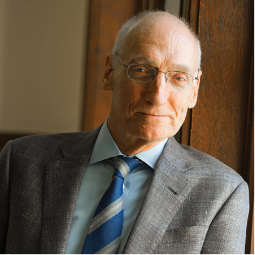
From the beginning, Teachers College’s vision for education was ahead of its time, reflecting as it did a broad understanding of human flourishing. In an obituary for TC’s founder, Grace Hoadley Dodge, the New York Tribune said, “she looked ahead a century and made her plans accordingly.” It has been more than 100 years, but the events of the past year have brought into sharp relief the prescience of the College’s comprehensive vision of human development.
2021 exacerbated and brought to light challenges and issues across areas—education, psychology, health, leadership, equity, access, justice—that have always been the core focus of TC’s work. In response, our extended community brought to bear the full force of their expertise and commitment. From integrating mental health interventions across classrooms to identifying effective online strategies for diagnosing speech and swallowing disorders, to adapting culturally responsive practices for remote teaching, students, faculty, and staff worked hand-in-hand with partners, practitioners, and neighbors to share knowledge, gain insight, and advance solutions.
At the same time, the TC community initiated, produced and disseminated research that promises to raise awareness, empower practitioners and shape policy far into the future. Faculty with their students won grants to study gun violence and online learning in higher education and develop new curriculum in climate change and Black Studies; they published books on trauma and resilience, spirituality and mental health, deescalating polarization, and interventions to counter racism and bias; students and alumni shared experiences at the Academic Festival that spanned working with Liberian educators to implement a human rights curriculum to assessing mental health needs among Amazonian communities in Peru.
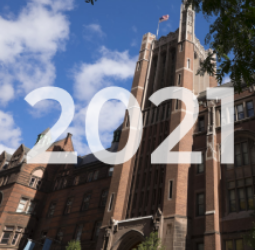
Internally, the year was characterized by the ability and willingness of the TC community to remain flexible and persevere in the face of great change and unpredictability. Students, faculty and staff proved to be nimble, creative problem-solvers as they worked within the constraints of the remote setting to tackle everything from fieldwork and residencies to maintaining a vital sense of community. By necessity, we gained skills and experiences that provide invaluable insights about where and how the online modality can strengthen our work and the opportunity to apply these lessons as we begin reimagining how to structure work, teaching, mentorship, and public outreach in a post-pandemic world.
Above all, 2021 was a year that reminded us what we value and love about TC. Our work has never been more relevant, and thus the imperative of continuously improving as an institution has never been more paramount. In 2021, we formally launched five strategic priorities to set a purposeful course for the College’s future. Our efforts to better serve students and alumni, deepen our vibrant culture of diversity and inclusion, strengthen research capacity and academic excellence, and sharpen our expertise and leadership in digital learning will allow us to innovate, anticipate challenges, and forge new solutions as we head into the next 100 years.
None of this would have been possible without our students, faculty, and staff, our far-flung alumni—over 90,000 strong—and our donors, partners, supporters and neighbors. The 2021 Annual Report is a celebration of the power of collaboration and community, demonstrating all that can be accomplished when we join forces to advance the public good.
Warmly,

Thomas Bailey
President

Making an Impact: Tackling Critical Issues of 2021
In another year of discord and uncertainty, we witnessed our faculty, students, alumni and partners collaborate to bring innovative solutions and inquiry to the most pressing issues of our time, including educational equity, mental health, racial justice, poverty, political polarization, gun violence, and climate change.
Educational Equity
As schools confront broader struggles with racial inequity, mental health and social divides, TC continues to strive for solutions to these unprecedented challenges with groundbreaking research, in classrooms, through community outreach and as we prepare our students to lead as changemakers upon graduation.
Supporting School Partners

Responding to the often very visceral impact of the pandemic on school leaders and teachers, our faculty, students and centers provided a variety of supports to guide schools in New York City and beyond through the year’s challenges.
- The Center for Technology and School Change, led by Professor of Computing & Educational Practice Ellen Meier, worked with teachers throughout the NY Metropolitan Area in schools serving more than 7,500 students. They supported teachers through innovative, technology-enhanced learning experiences situated within the context of their own lives and in the culture of the school and the community.
- Detra Price-Dennis, Associate Professor of Communication, Media and Learning Technology Design, supported the National Council of Teachers of English (NCTE) in helping the organization’s 35,000 members incorporate culturally responsive and anti-racist pedagogies into their online teaching. In a new study, Price-Dennis collaborated with an interdisciplinary team of TC students to investigate how K-12 teachers adapted their culturally responsive instructional practices during the emergency shift to remote learning precipitated by the Covid-19 pandemic.
- The Center for the Professional Education of Teachers (CPET) added culturally relevant and responsive/sustaining pedagogy as a core component of all of their custom-designed professional development programs for schools, incorporated into projects through: data-driven inquiry; curriculum and instruction; school identity and community; and shared history and language. As a result of the pandemic, CPET is now offering schools a broad variety of hybrid resources and methods for support.
Building Black Studies
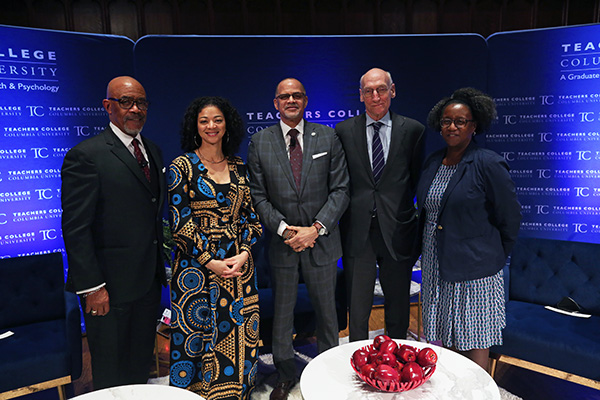
This year saw the launch of groundbreaking research from TC’s Black Education Research Collective (BERC), led by Professor of Education Leadership Sonya Douglass Horsford, on the impact of the pandemic and systemic racism on Black students. BERC is playing a lead role in developing and supporting an interdisciplinary K-12 Black studies curriculum for New York City public schools, with a $3.25 million grant from the New York City Council.
Strengthening Early Childhood Policy
To cultivate a new scholarly and professional field of Early Childhood Policy, Sharon Lynn Kagan, TC’s Virginia and Leonard Marx Professor of Early Childhood and Family Policy, and Kathy Thornburg (University of Missouri) are spearheading a national initiative replete with scholars, publications, Centers, and degrees. TC’s National Center for Children and Families, co-directed by Kagan and Jeanne Brooks-Gunn (TC’s Virginia and Leonard Marx Professor of Child and Parent Development and Education), is the “epicenter” of the initiative that will design, fund, coordinate and evaluate a series of efforts, including: 13 Centers, each of which is durably instantiating early childhood policy in their offerings at the Doctoral, Masters, and/or certificate level; an online network; and a national consortium. Funded by the Heising-Simons Foundation, the Buffett Early Childhood Fund, and the Bezos Family Foundation, the effort, called Early Childhood Policy in Institutes of Higher Education (ECPIHE), began with an analysis of how a new field of inquiry emerges, and today has a national presence.
A Centennial Celebration
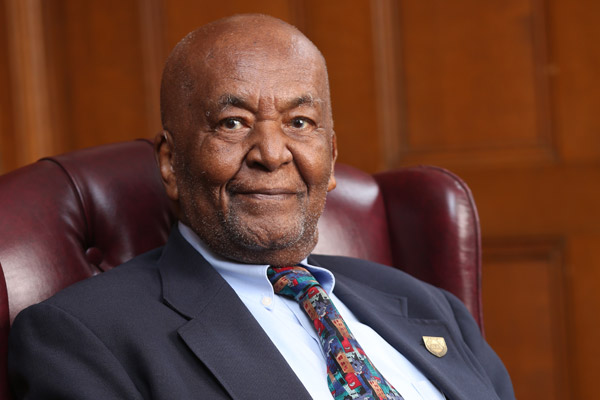
TC faculty and national experts convened to discuss the academic legacy and future of affirmative development at the Edmund W. Gordon Centennial Conference, which commemorated the life and 100th birthday of Gordon, the Richard March Hoe Professor Emeritus of Psychology and Education. On the occasion, TC announced the renaming of the College’s Institute for Urban and Minority Education (IUME) in honor of Gordon, who founded the Institute in 1974.
Preparing Tomorrow’s Teachers
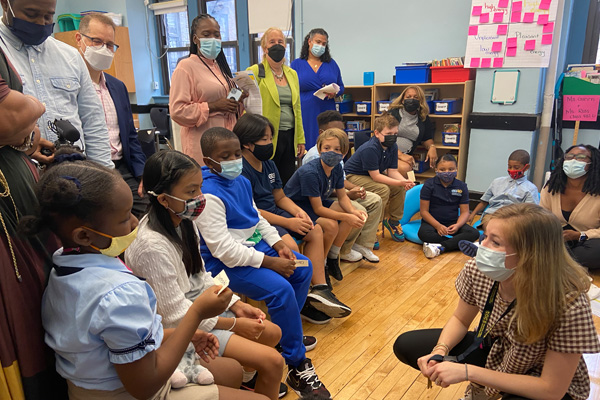
Dedicated to strengthening New York City classrooms, the College’s 12 current Abby O’Neill Fellows—our largest cohort to date—continued their preparation to become teachers in the city’s public schools, while renewed state funding ushered in a new cohort in our Teacher Opportunity Corps, which recruits and prepares teachers of color in culturally sustaining pedagogy. As members of our Peace Corps Fellows Program, founded at TC in 1985, 21 Jaffe Fellows will leverage their international experience as teachers in some of New York City’s most underserved schools.
Fostering College Success

In its 25th year, TC’s Community College Research Center (CCRC) conducted research in numerous areas related to community college student success, including the impact of the pandemic on enrollment; strategies to support students of color and low-income students; the challenges facing rural community colleges; and dual-enrollment access.
Mental Health and Wellness
Climbing rates of mental health issues amid the pandemic highlighted an already painful truth: educators and the general public have much to learn and gain from experts working to find actionable ways to support better mental health and access to medical care–especially for underserved and minoritized populations. The challenges ahead are formidable. And TC has not shrunk from the task.
Reducing Gun Violence

School-based gun violence presents deep concerns and challenges to students, educators, families and policy-makers alike. In a new study funded by the National Institute of Child Health and Human Development (NICHD) at the National Institutes of Health (NIH), Associate Professor of Health Education Sonali Rajan and an interdisciplinary research team is examining if specific school safety strategies affect intentional gun violence in K-12 public schools around the country. Rajan and other TC colleagues are also collaborating to pursue evidence-informed solutions to the persistence of gun violence through the Columbia Scientific Union for the Reduction of Gun Violence (SURGE).
Understanding Trauma & Resilience

Better addressing mental health means better understanding it. On the twentieth anniversary of the September 11th attacks, valuable research on what trauma actually looks like and the power of resilience entered the conversation with a new book from Professor of Clinical Psychology George Bonanno. The benefits of spirituality in supporting mental health was explored in a new book by Lisa Miller, Professor of Psychology & Education.
Cultivating Reproductive Identity
Continued support from Mary Edlow (M.A. ’67) enabled Research Professor Aurelie Athan and Associate Professor of Practice Riddhi Sandil to strengthen the Edlow Reproductive Literacy Project that prepares teachers to empower and better support students as they explore their reproductive futures. The gift supports teachers in the field of sexual and reproductive health, as well as TC students and alumni who are mentored and trained in the new concept of reproductive identity development. With expansion into underserved communities across the nation thanks to the shift to the online format, and as an approved provider of Continuing Teacher and Leadership Education (CTLE) credits, the program is poised for growth in the coming year.
Supporting Student Mental Health

With funding from the Spencer Foundation, Assistant Professor of School Psychology Prerna Arora and colleagues are examining ways to prepare teachers and leverage school climate to support positive mental health and academic outcomes among newcomer immigrant students, who are at high risk for depression and dropping out, and to introduce school-level interventions that address newly pervasive mental health challenges among teachers, administrators, students and families. In another Spencer Foundation-funded study, S. Garnett Russell, Associate Professor of International and Comparative Education, and TC students explored the role of schools in fostering belonging and civic identity among newcomer and refugee students in Arizona and New York schools.
Expanding Patient Access

As individuals with speech and swallowing disorders faced specific challenges related to the social distancing requirements of the pandemic, Associate Professor of Speech & Language Pathology Michelle Troche and colleagues in the Laboratory for the Study of Upper Airway Dysfunction published findings on telehealth as a means to diagnose and care for these patients.
Social Equity
Building a better world means tackling major sociological challenges like persistent racism, widening economic gaps and the nutrition issues perpetuated by food deserts, access and urban life. Pioneering research, thought provoking conferences and publications are moving social equity beyond classrooms and labs.
Tackling Micro-interventions
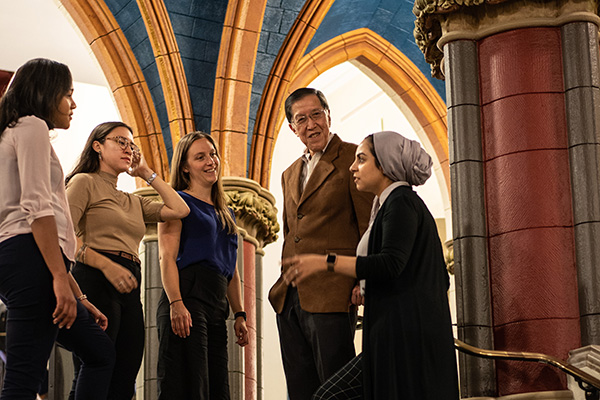
Dismantling racism and implicit bias is a formidable task, however, new research on ‘micro-interventions’ from Professor of Psychology & Education Derald Wing Sue and TC students offered actionable strategies for everyday individuals, building on Sue’s foundational work in understanding microaggressions.
Decolonizing Psychology
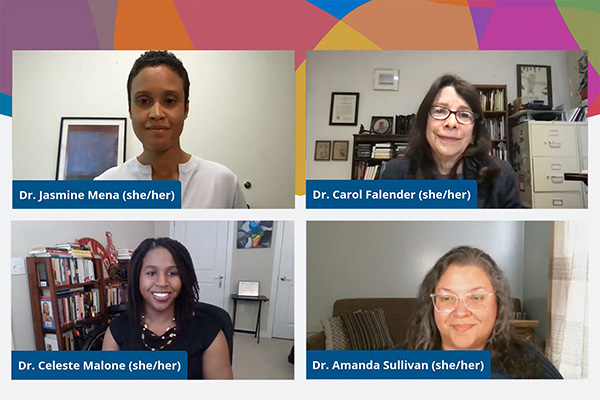
How can psychology and mental health transform into an actively anti-racist, more inclusive field? TC experts explored just that in “Decolonizing Psychology Training: Strategies for Addressing Curriculum, Research Practices, Clinical Supervision, and Mentorship,” a virtual conference that convened more than 5,000 academics, practitioners and policy-makers in discussions around psychology as a perpetrator of inherent inequity and bias. Spurring similar work at other universities, the School Psychology program and Health & Behavior Studies department have continued this effort through working groups, curricular changes, and shared readings.
Poverty and the Brain

Economic inequity impacts infant brain development, according to the initial findings of Baby’s First Years, a comprehensive study evaluating the impact of poverty reduction on early childhood development and family life that drew national attention to lead researcher, Professor of Neuroscience & Education Kimberly Noble.
Food Insecurity
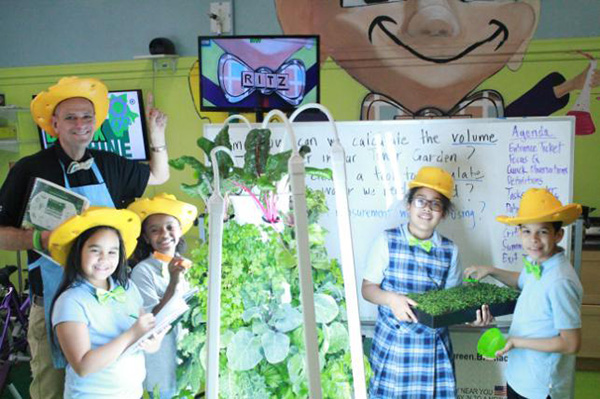
Building healthier communities means addressing wide-ranging issues in food access and equity, work that the College’s Laurie M. Tisch Center for Food, Education & Policy continued to lead with efforts to shape NYC food policy and the Food Ed Coalition, a diverse group of over 300 food and nutrition advocates, program leaders, and school community members. The Center also welcomed its new Executive Director, Dr. Sara Abiola.
Climate Change
With the sixth warmest year on record corroborating that the future of climate change is now, TC addressed the future through education, research and advocacy.
Cutting-edge Curriculum

A cutting-edge climate change curriculum will debut in New York City classrooms thanks to College faculty who are collaborating with Columbia University on an artificial-intelligence climate modeling center.
Center for Sustainable Futures

To address a multi-generational issue like climate change, young people need to be involved. Students supported by Zankel and post-doctoral Goldberg Fellowships launched Youth at the Center, a Center for Sustainable Futures Institute aimed at engaging middle and high school students in climate activism.
Political Polarization
As the United States and the broader world grapple with extreme political division, TC faculty offered tools for dialogue, understanding and reconciliation through education in a year that began with an insurrection at the seat of government.
Pathways for Conflict Resolution

Research and public scholarship on political polarization and conflict resolution from Professor of Psychology & Education Peter Coleman presented pathways for a deeply-divided America to reconcile its differences.
Violent Political Extremism

Work to address extremism continues in the classroom with a U.S. Department of Homeland Security grant that will provide educators with a professional development program to identify and de-escalate violent political extremism, led by Amra Sabic-El-Rayess, Associate Professor of Practice, and students.
TC By the Numbers
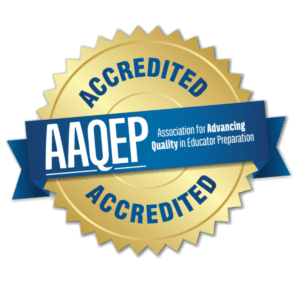


Preparing Students to Lead
Big dreams require big plans. And with significant investment in refining student pathways, Teachers College is offering robust, coordinated and highly effective systems of support that enable student success and promised outcomes – from application to after graduation and beyond.
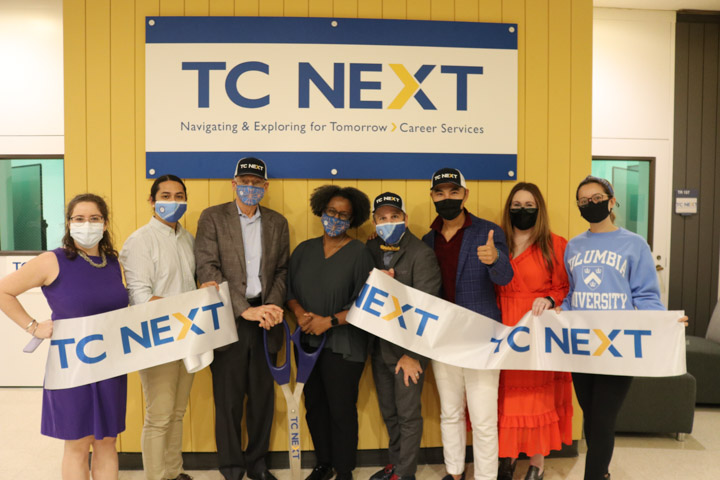
Building Pathways for Students
Committed to student success from the first day of class through after graduation, the Division of Student Affairs continued to streamline its support services to facilitate and enhance the student experience. In addition to extensive investment in Student Health & Wellness, TC NEXT launched its on-campus office, expanded its offerings to help students and alumni plan and navigate their career pathways, and partnered with 300+ new employers to match TC students and graduates with professional opportunities.
Student-Parents
TC student-parents face unique challenges and in 2021, the Office of Graduate Student Life & Development introduced new supports that will include the creation of a new staff position, funded with a gift from TC Trustee Carole Sleeper (M.A. ’05). The new role will oversee and expand on tailored resources to help student-parents navigate challenges and build a supportive network of peers, including a support group, childcare resources, family outings and a dedicated newsletter.
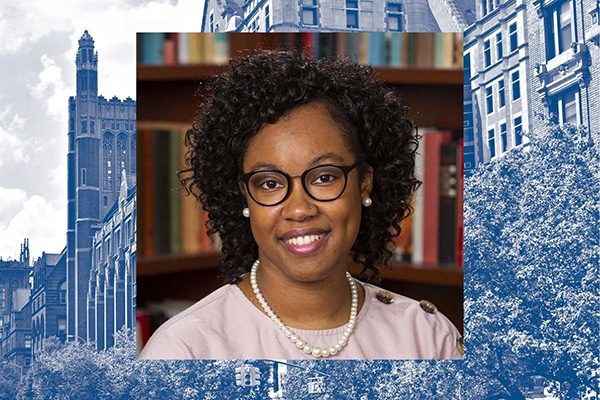
Student Victories
Positioning students to succeed is an enduring principle and commitment. For students like MacKenzie Isaac, who as a recipient of the prestigious Rhodes Scholarship will study at the University of Oxford next fall, TC plays a key role. “I’m really privileged to be part of the Health Education program at Teachers College,” says Isaac, who also feels pride in the strength of the TC community and its support networks. “At TC…I feel like my voice is heard and that my voice is represented.”
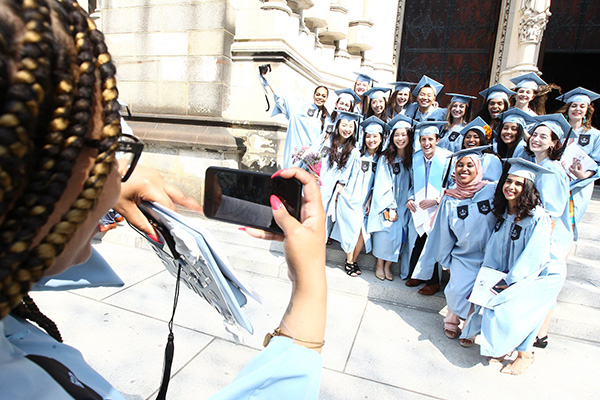
Alumni Affinity Groups
The launch of networking affinity groups for Black, LGBTQIA, Latinx and Asian and Pacific Islander alumni provides opportunities for our graduates to support each other and collaborate to advance Diversity, Equity and Inclusion beyond the TC campus and into their professional fields and careers.
TC by the Numbers

Engaging Our Community
Once you’re part of the Teachers College community, you can always call it home – even after you leave TC Way. Whether welcoming our faculty, staff and students back to campus, engaging alumni, or supporting the surrounding Morningside Heights community, we believe that the strength of our community speaks to the long-term resilience of Teachers College itself.
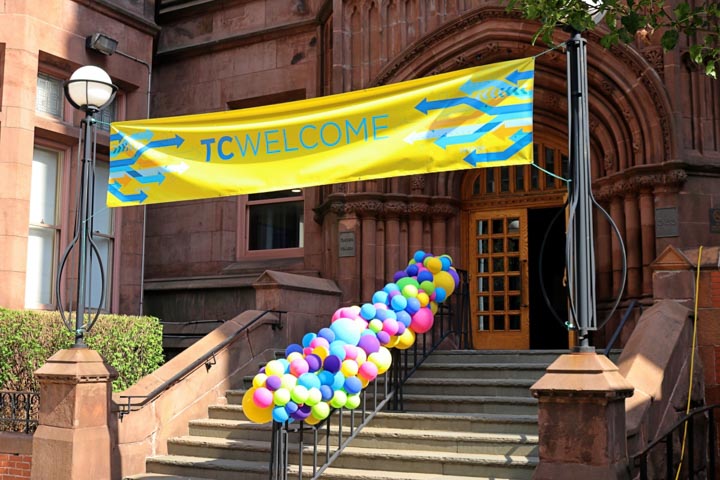
Return to Campus
TC ensured health and safety protocols were a top priority as the College welcomed students, faculty and staff back to campus for the 2021-22 academic year. The College moreover kept pace as mask requirements, vaccines and variants reshaped the local and national response to the pandemic. In October, TC honored essential staff for their dedication and critical contributions to the College during the pandemic.
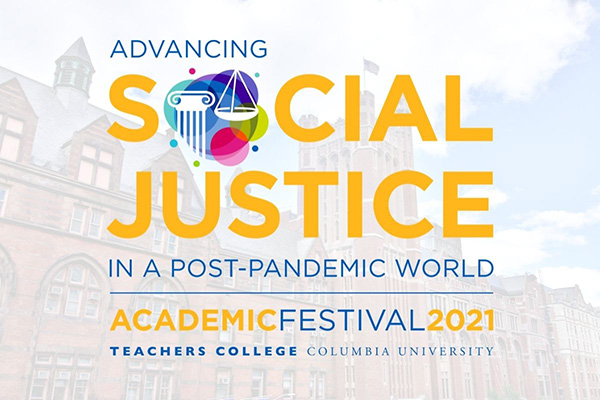
Academic Festival
Bringing alumni, faculty and students together for an engaging, multi-day virtual discussion, Academic Festival explored advancing Black studies, workplace inclusivity, equitable food policy and the role played by spirituality in promoting sound mental health. In its 13th year, AcFest by tradition saluted Distinguished Alumni and Early Career Award recipients.
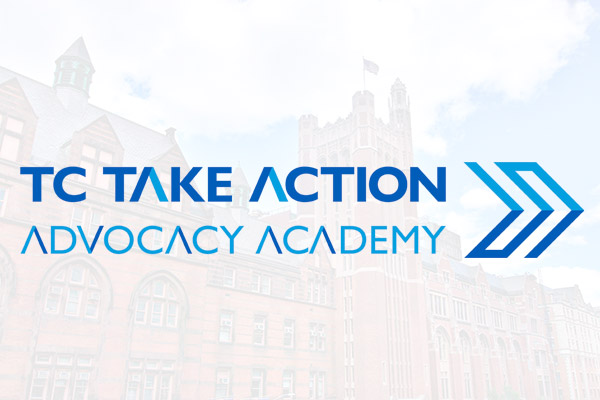
Advocacy Academy
Guided by elected officials, academics, non-profit leaders and student activists, participants in virtual Advocacy Academy workshops gained valuable information and tips on how to advocate for social good in the midst of the pandemic.
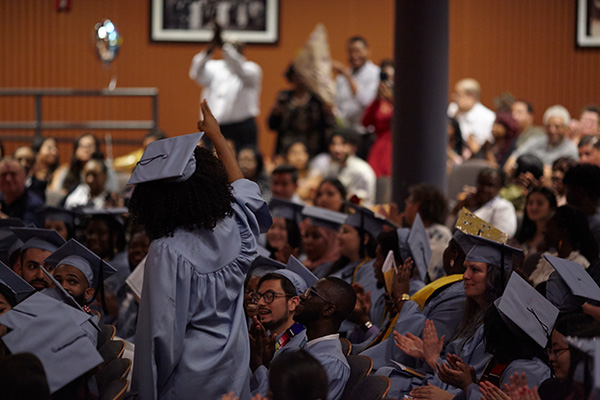
First Generation Students
To honor the many students, alumni and faculty in the TC community who are the first in their families to attend college or graduate school, the College celebrated First Generation Student Day in a multifaceted effort to engage and mobilize community support.
TC By the Numbers



A Letter from Institutional Advancement (IA)
Purpose. This is the word that comes to mind when I think of the past year. 2021 was not easy—the suffering stemming from the pandemic, racial violence, climate change-induced natural disasters, economic disruption and growing partisan rancor was widespread.
The exigencies of these crises sharpened our sense of urgency around the work we do. Too many in the United States and in countries around the world retreated or engaged from the sidelines in unproductive battles of words and ideas. At Teachers College the opposite happened: Faculty, students, staff, donors and alumni took action with purpose, marshaling expertise and resources to meet accelerated social challenges. Our strategic priorities, too, gave shape and focus to our efforts so we can deepen our societal impact right now and far into the future.
This year’s Annual Report celebrates this purposeful action. In the spotlight are the many ways we—the TC community—mobilized and gave through TC to forge and disseminate solutions in areas as far-ranging as food insecurity, mental health services, and reproductive health education. It showcases partnerships that grew stronger as we worked together to navigate a new landscape and novel strategies for empowering our community to advocate on behalf of equity, access and opportunity.
Even as the disruptions of 2021 presented new and often profound obstacles, our students remained the beating heart of the College. Their persistence, productivity and sustained service focused our entire community on ensuring they have what they need to pursue their goals and deepen their impact. When some students faced financial hardship, TC faculty, staff and fellow students rallied to raise funds. One professor, citing her own love for mentoring students, established an award to inspire more faculty toward excellence in mentoring. TC Trustee Carole Sleeper (M.A. ’05) funded a new Graduate Student Life position focused on student-parents, who last year faced distinct challenges. New scholarships in school leadership and music education were established, and participants at the Edmund W. Gordon Centennial Conference, galvanized to advance student work in educational equity, energetically contributed to the Gordon Scholarship.
In sum, it was a year of stepping up and stepping out. The TC community came together to help, to empower, and to demonstrate all that is possible. It is an honor to work with all of you, and I can’t wait to see what we accomplish next.
Warmly,

Kelly S. Moody
Vice President, Institutional Advancement
Promoting Student Mentorship
Strong mentoring is perhaps the most valuable gift our faculty can provide for students, especially those in doctoral programs. An anonymous faculty member, who has witnessed the rewards of mentoring their own doctoral students, joined the TC Grace Dodge Society with the establishment of an award, through their estate plans, to honor and encourage faculty members who exemplify successful mentoring of students, particularly with their research efforts. The gift will ensure that students are not only prepared as experts in their fields, but are also prepared for the steps that contribute to their professional pursuits from publishing to job searching and networking, to transitioning into their new careers, to eventually serving as mentors themselves after they leave TC.
Making Music
The Teachers College Community School (TCCS) continues to thrive in its work to offer robust and equitable learning experiences for its 350 PreK through 8th-grade students. Nowhere is this more evident than through its music program, which has flourished over the past year with leadership from Evalyn Edwards Milman Music Education Fellow Anh-Thu Phan. A TC doctoral student in music education, Phan worked closely with the part-time music teacher, mentored and provided professional development to TC master’s level music education students, created lessons and a website that students can access at any time, and developed and piloted a PreK-8 curriculum. A new gift from Evalyn Milman to the Milman Music Education Fellowship will fund additional Fellows to lead and fully implement this tiered learning program at TCCS. The school will also explore an association with the Philharmonic’s music education training program to offer TCCS team members the opportunity to incorporate elements of what they learn into the school’s curriculum.
Empowering Veterans
As part of its ongoing work to support the health and well-being of veterans as they transition from military service to civilian life, the Resilience Center for Veterans & Families continued groundbreaking research examining patterns of transition stress among veterans. With support from a new gift from TC Trustee David O’Connor, Resilience Center Director and Professor of Clinical Psychology George Bonanno has enrolled 900 veterans in a national survey, and is conducting interviews and experiments with veterans and their families to better understand how flexibility and self-regulation factor into responses to stressful situations.
TC By the Numbers
Financials
The accompanying financial statements have been prepared on the accrual basis of accounting in accordance with standards established by the Financial Accounting Standards Board (FASB) for external reporting.

Building Our Future
At TC’s Annual State of the College address, President Bailey introduced five strategic priorities we have established to chart our path forward. These priorities speak to the moral imperative of leading the way in addressing inequities in education, psychology, and health that have become even more stark over the past two years, and refining our own structures at the College so that we can become an even stronger institution and deepen our impact.
TC IMPACT DAY
On the first TC IMPACT Day, the Teachers College community will celebrate the daily contributions of our alumni, students and faculty in making the world a better, more equitable place through education, health and psychology. Whether it is through volunteer service, social media discussion or a gift to the College, we hope you will join us for #TCImpactDay on Wednesday, April 6.
